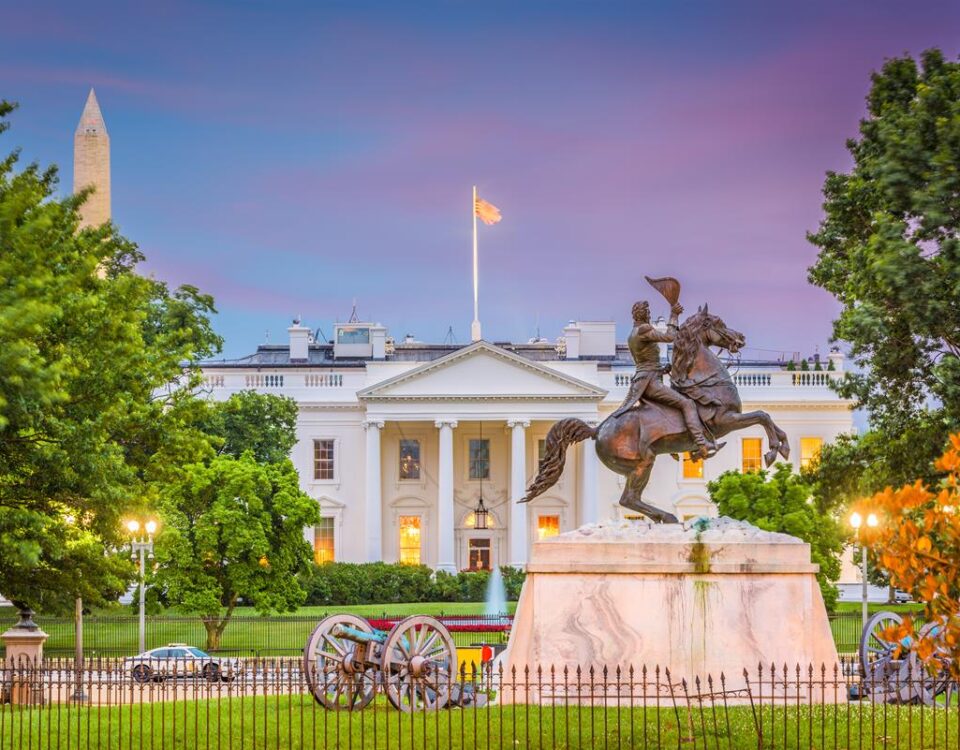
Soulja Boy’s Crypto Ball Controversy: Profit Over Politics Debate Ignites
January 21, 2025
Keke Palmer vs. SZA vs. Issa Rae | Hot Ones Versus
January 22, 2025President Grover Cleveland vs. Donald Trump
Grover Cleveland and Donald Trump, though separated by more than a century, share some notable similarities in their political careers and personal lives. While their approaches to leadership, policy, and political ideologies diverged in many ways, there are some intriguing parallels between the two men, particularly in their roles as political outsiders, their unorthodox paths to the presidency, and their tendency to defy conventional political norms.
One of the most striking similarities between Cleveland and Trump is their status as political outsiders. Grover Cleveland who was elected the 22nd and 24th president of the United States, was a political newcomer when he first ran for president in 1884. Before his presidential run, Cleveland was the mayor of Buffalo, New York, and governor of New York. He was not part of the established political elite of the time, and his rise to the presidency was largely due to his reputation as a reformer and a man of integrity in a period marked by political corruption.
Similarly, Donald Trump entered the 2016 presidential race with no previous political experience. A businessman and television personality, Trump’s outsider status was central to his appeal, especially to voters frustrated with what they saw as a stagnant, corrupt political establishment. Like Cleveland, Trump ran as a self-proclaimed reformer, promising to “drain the swamp” in Washington and challenge the political norms of the day.
Both Cleveland and Trump built significant support among working-class Americans by positioning themselves as advocates for the common man. Cleveland was known for his firm stance against political corruption, particularly in his opposition to the patronage system that rewarded political loyalty with government jobs. He promoted a philosophy of honest government and was seen as a champion of the average citizen, particularly in his veto of bills that he believed would waste taxpayer money.
Trump similarly courted blue-collar voters, especially in the Rust Belt, by promising to bring back jobs, protect American industries, and impose tariffs on foreign goods to benefit American workers. He often presented himself as the voice of the forgotten middle class, challenging the traditional economic and trade policies that had been in place for decades.
Both Cleveland and Trump were subjects of political controversy during their presidencies, often attracting intense criticism for their actions and personal lives. Cleveland faced criticism for his past as a bachelor and a scandal involving the alleged illegitimate child of a woman named Maria Halpin, which became a widely discussed issue during his 1884 campaign. Despite the scandal, Cleveland managed to retain his credibility by taking responsibility for the situation, which led to him being seen as an honest man who was willing to face the truth, even when it was uncomfortable.
Trump, similarly, faced multiple controversies throughout his career, including allegations of infidelity, business dealings, and the infamous Access Hollywood tape that came to light during the 2016 campaign. Despite these controversies, he was able to maintain strong support among his base, in part because many of his supporters viewed him as an outsider who was willing to challenge the status quo, regardless of personal shortcomings.
Another similarity between Cleveland and Trump is their unique electoral trajectories. Cleveland was the only president, at the time, in American history to serve two non-consecutive terms, having lost his re-election bid in 1888 to Benjamin Harrison before returning to the White House in 1892. Trump, too, faced a defeat after his first term, losing his re-election bid to Joe Biden in 2020 only to regain the presidency in 2024. Both men displayed resilience and the ability to maintain a loyal political base, leading to their continued influence within their respective political parties.
In conclusion, while Grover Cleveland and Donald Trump had very different political ideologies and operated in different historical contexts, their careers share several striking similarities. The two men had two non-consecutive terms in the White House being the only presidents to do that. Both men were political outsiders who built populist movements, attracted significant controversy, and ultimately challenged the political establishment in ways that shaped their presidencies. Their paths to power were unconventional, and they both left a lasting impact on the American political landscape.
C. Rich
CRich@AmericaSPeaksInk.com

C. Rich is the voice behind America Speaks Ink, home to the America First Movement. As an author, poet, freelance ghostwriter, and blogger, C. Rich brings a “baked-in” perspective shaped by growing up on the streets and beaches of South Florida in the 1970s-1980s and brings a quintessential Generation-X point of view.
Rich’s writing journey began in 2008 with coverage of the Casey Anthony trial and has since evolved into a wide-ranging exploration of politics, culture, and the issues that define our times. Follow C. Rich’s writing odyssey here at America Speaks Ink and on Amazon with a multi-book series on Donald Trump called “Trump Era: The MAGA Files” and many other books and subjects C. Rich is known to cover.
“America Speaks Ink is a Google News approved source for Opinion”





